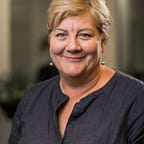This school holidays, make a plan for mucking about
Playground equipment is no longer safe, organised sport is out, movies are closed and fast food outlets are reduced to drive throughs. There will be less tolerance of children being outdoor and in public places on their own. Plus parents are likely to feel increased concern and guilt about allowing their children too much screen time. For some kids, the next two weeks will be a difficult time. For many, having less regulation over their time and activities will be distressing and anxiety producing, rather than the relaxing, playful time it could or should be.
In much the same way adults have found it difficult to adjust to the impact of COVID-19 and the need to work from home, learn new routines, find new ways to connect, and cope with personal worries and fears about the future, the same is true of children.
During and beyond this school holidays, children and young people will continue to experience massive change to both their daily and weekly routines, and to the structure of their lives. They’ll see how the lives of other families and those of their mates change dramatically during this time too, which will provide some consolation. But not visiting cousins, grandparents and friends, playing regular sport or attending a dance or drama class, will become increasingly frustrating.
As we head into the school holidays then, it’s a good idea to help prepare children of all ages for what is ahead. This starts with being clear about what is and isn’t possible for them to ‘do’ within the new COVID-19 requirements.
For kids, the things they ‘do’ form a core part of their identity. Reframing the situation is therefore essential, and this starts with acknowledging impact.
Talk to children and young people about what the restrictions mean to them. Listen to what they say, and acknowledge their frustrations. Point out the positives too. A break from routine, a chance to do some new things, and to perhaps have more family time to do some of the same things differently — like camping in the backyard at home over Easter, for example.
Being prepared and having a plan will help children cope. A plan that children can develop with you, that contains the list of things they can do, will focus their thinking and help them see the positives. It will also send the strong message that you’re interested in their wellbeing, and it will provide them with a map for how they spend their time, which they can refer to easily. They’ll also see that school holidays don’t have to have all the timeslots filled in; that there can be slots for day dreaming and just ‘mucking about’ — when some of the true benefits of childhood play can be experienced.
I have asked hundreds of children and young people what play means to them — who they like to be with, where they want to be, and what they like to do when they play? Not surprisingly the five most popular answers they’ve given are ‘hanging out’, ‘playing sport’, ‘being active’, ‘making and creating’, and ‘relaxing’.
Play, mucking about, chilling with friends, hanging out — whatever it’s called — is not only a child’s right, it is an essential activity for their health, wellbeing, learning and overall development.
Play is not just a way to pass the time. Play allows kids to engage in activities that are enjoyable, spontaneous, expressive, and of their own choosing; based on their own interests and ideas. Play makes them feel good about themselves and their lives.
As an approach to life, learning how to move into a state of ‘playfulness’ can be a source of resilience, strength and adaptability. Likewise, making a plan for the school holiday’s that purposefully builds play in will simultaneously increase a child’s self-confidence and give them a sense of control, while also sending the message that play is good. This is true for both small and big kids alike.
Once children have play validated by parents, it gives them permission to spend time exploring who they are. That way kids can look at the range of activities they do, and feel empowered by choosing one they prefer. It might be piano, drawing, designing a gadget, building a pillow castle or fashioning a cubby house.
Many of the 21st Century skills we want our future workforce to be equipped with include creativity, spontaneity, problem solving, self-awareness and critical thinking. And many of these skills are developed through play. We seem instinctively to know this for pre-schoolers, but forget play is equally important for children and young people of all ages. We need to understand that kids play is much more than a way to occupy time. It helps them to determine what they’re good at, what they enjoy, and what they are passionate about.
Because school holidays should really be about play and relaxation (not just catching up on homework or completing unfinished school assignments) validating it’s inclusion in a school holiday plan sends the message that it’s not something left for adults to organise on their behalf — it’s something they have the right to do, plan for, and participate in, wholeheartedly, on their own terms. Plan for play today.
For more information about the “What do SA kids have to say?” infographics, click here.
